WWF Australia
Industry, community and environment, union and science leaders unite in urgent call for EPBC Act reform
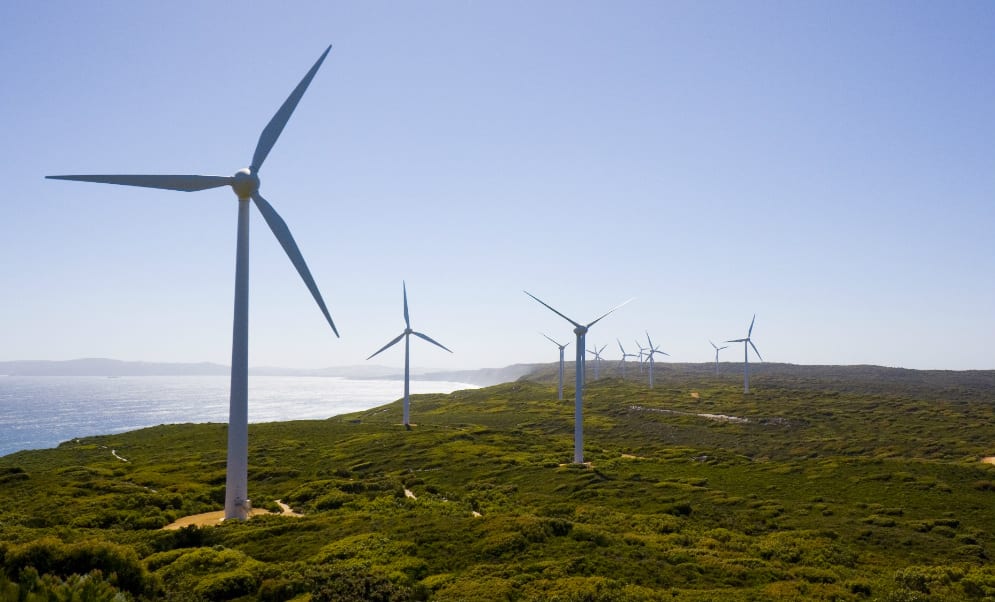
In an unprecedented show of unity and in the face of the escalating impacts of climate change and rapid biodiversity loss, industry, community and environmental organisations are calling on the Albanese government to deliver its long- awaited reform of the Environment Protection and Biodiversity Conservation (EPBC) Act.
A coalition of industry, community and environmental groups says the EPBC Act is failing on all fronts. It does not adequately protect nature and it is delaying the renewable energy and transmission projects needed to rapidly decarbonise the economy.
Richie Merzian, chief executive of the Clean Energy Investor Group (CEIG) said the government will not meet its renewable energy targets without modern, fit-for-purpose environmental laws underpinning better decision-making.
“If delivering a clean energy future is a priority for the Albanese government, then reforming the EPBC Act must be too. It is now the single biggest barrier to timely, environmentally responsible, renewable energy development in Australia.”
CEIG’s recent report, Delivering Major Renewable Energy, identified major bottlenecks in environmental assessments under the EPBC Act and found many projects now wait more than two years for a federal decision.
Kelly O’Shanassy, chief executive of the Australian Conservation Foundation (ACF), said, “The EPBC Act’s uncertain and unpredictable assessment and decision-making processes fail to protect nature or support investment in renewable energy. We have a once-in-a-generation opportunity to re-shape the law to tackle Australia’s climate and nature crises.”
The groups are calling for environment laws that enable faster, more efficient and predictable project assessments while improving nature protection, increasing community confidence and empowering indigenous communities to plan an active role in decisions that affect their lands and seas.
The groups called for legislation that is efficient and protects nature and provides for:
Kane Thornton, CEO of the Clean Energy Council, said, “Any decision to stall the progress of much-needed Nature Positive reforms to the Environmental Protection and Biodiversity Conservation (EPBC) Act risks missing a crucial opportunity to address one of the most significant challenges facing investment in renewable energy projects across Australia.
“The current iteration of the EPBC Act and its inherent limitations are a cause of significant delays to the construction of new renewable energy infrastructure needed to ensure that Australia can meet its renewable energy targets.”
Dermot O’Gorman, CEO of WWF-Australia, said, “Industry and environment groups are ready to help deliver the Prime Minister’s promise of making Australia a renewable energy superpower —but that won’t be possible unless we fix our failing nature laws.
“The world is watching as Australia bids to co-host the COP31 climate summit with the Pacific. EPBC reform must be part of our commitment to global climate leadership.
“We need strong nature laws to ensure the renewable energy transition protects our environment and delivers for communities.”
Paul Gamblin, CEO of the Australian Marine Conservation Society, said, “Australia has the opportunity to undertake renewable energy development in our oceans responsibly, but we need the Australian Government to show leadership in filling critical knowledge gaps, and genuinely partner with First Nations peoples, and coastal communities to ensure offshore wind progresses in a fair, inclusive and respectful way.”
“Where uncertainties remain, we need confidence that stronger nature laws will put effective safeguards in place to ensure that development avoids harming our fragile ocean.”
Biodiversity Council Co-Chief Councillor Professor Hugh Possingham said “Strong, transparent environmental laws and effective guidance from government are needed to enable Australia to move quickly toward renewable energy while ensuring that we are protecting the unique biodiversity and priceless cultural heritage that makes Australia so special.”
The Electrical Trades Union’s Michael Wright said “Workforce, training and EPBC assessments are problems that are tangled together. ETU members are ready to build the projects that will power Australia’s clean energy future, but too many projects are currently stuck in the assessment pipeline.
“Projects with 18 month build times are now spending over two years waiting for EPBC assessments.
“The uncertainty of the assessment process means there is no reliable pipeline of work for communities, or to train apprentices on anywhere close to the scale we need - an extra 42,500 electricians in the next five years.
“Reforming the EPBC Act must be a key priority of the Albanese government. That's how we can escape this situation where everyone knows where the work is, what it is and roughly when it is, but has no idea who will be doing it.”
Categories:
New Australian government must deliver early and decisive action on nature and climate
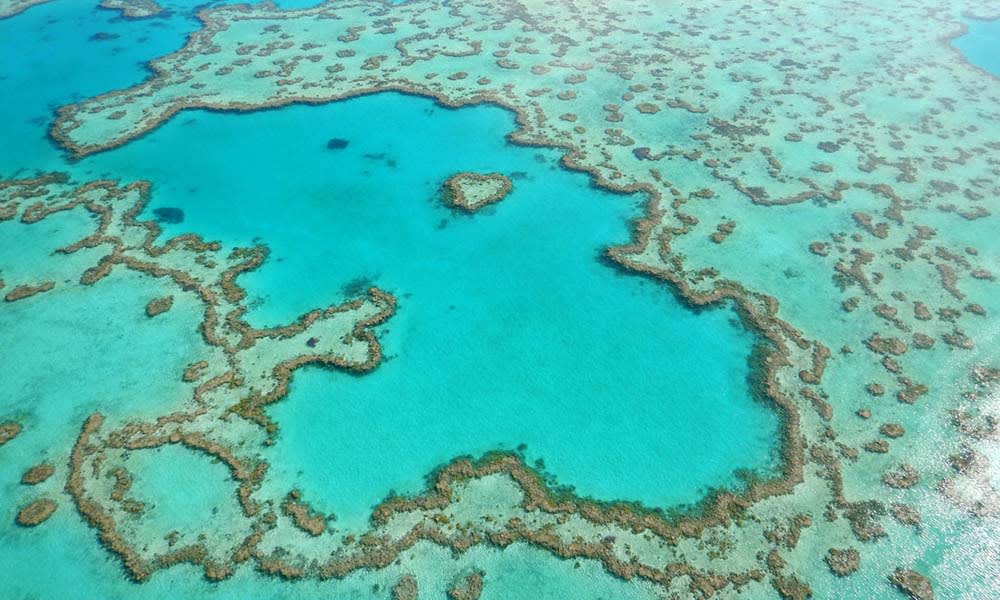
WWF-Australia has congratulated Anthony Albanese and Labor on victory in the federal election and urged him to deliver bold action on nature and climate in his first 100 days.
“The impacts of climate change and nature loss are being felt across Australia and the window for effective action is rapidly closing,” said Dermot O’Gorman, CEO of WWF-Australia.
“In tonight’s victory speech the Prime Minister acknowledged that climate change is a challenge we must act on together for the future of our environment.
“Voters have endorsed representatives that champion a clean energy future and the protection of our wildlife and wild places.
“Now it’s up to the new Parliament to act on this mandate.”
WWF-Australia will submit a brief to the incoming government that identifies 10 urgent actions to protect nature and address climate change in the first 100 days.
They include immediate steps to:
Mr O’Gorman said Labor must deliver on its pre-election promise to reform Australia’s nature laws and establish a national environment protection agency.
“Labor promised to fix our failing nature laws before the 2022 election, but instead we have seen reforms shelved and polluting industries put before nature,” he said.
“The government must provide a timeline, scope and process for the reforms in the first 100 days with a view to getting Bills tabled in the first year of Parliament.”
Mr O’Gorman said voters had also sent a clear message that they support a renewable energy future for Australia and the incoming government must respond.
“The Prime Minister vowed to make Australia a renewable energy superpower in his election victory speech in 2022,” he said.
“Labor has made significant investments to keep Australia’s transition to renewables on track, but continues to approve coal and gas projects. Australia also remains a world leader on exporting climate-damaging fossil fuels.
“Every single tonne of additional coal and gas is putting the future of Australian communities and our iconic reefs, forests and wildlife at risk.
“We must change course this year to have any hope of a safer climate future.
“Australia needs to set an emissions reduction target of at least 90% below 2005 levels by 2035 and commit to a phase out of fossil fuels to truly become a renewable energy superpower.
“We also note the government’s pre-election commitment to hold COP31 in Adelaide, should Australia secure the event. A COP31 hosted by South Australia, a leader in the clean energy, must be a defining moment for Australia to step up and do its part to stabilise warming to 1.5°C. The South Australian and federal governments must work in equal partnership with the Pacific.”
Mr O’Gorman also urged the new government to deliver on its commitment to be a world leader in ocean protection.
“Global warming, overfishing and pollution are all having devastating impacts on our oceans,” he said.
“We’re encouraged by Labor’s commitments to protect our oceans and call on the incoming government to start by ratifying the High Seas Treaty in the first sitting week of the new Parliament.
“Early and decisive action on nature and climate in the first 100 days is essential to building public trust and creating a sustainable and resilient future.”
Categories:
Great Barrier Reef hammered by widespread coral bleaching event
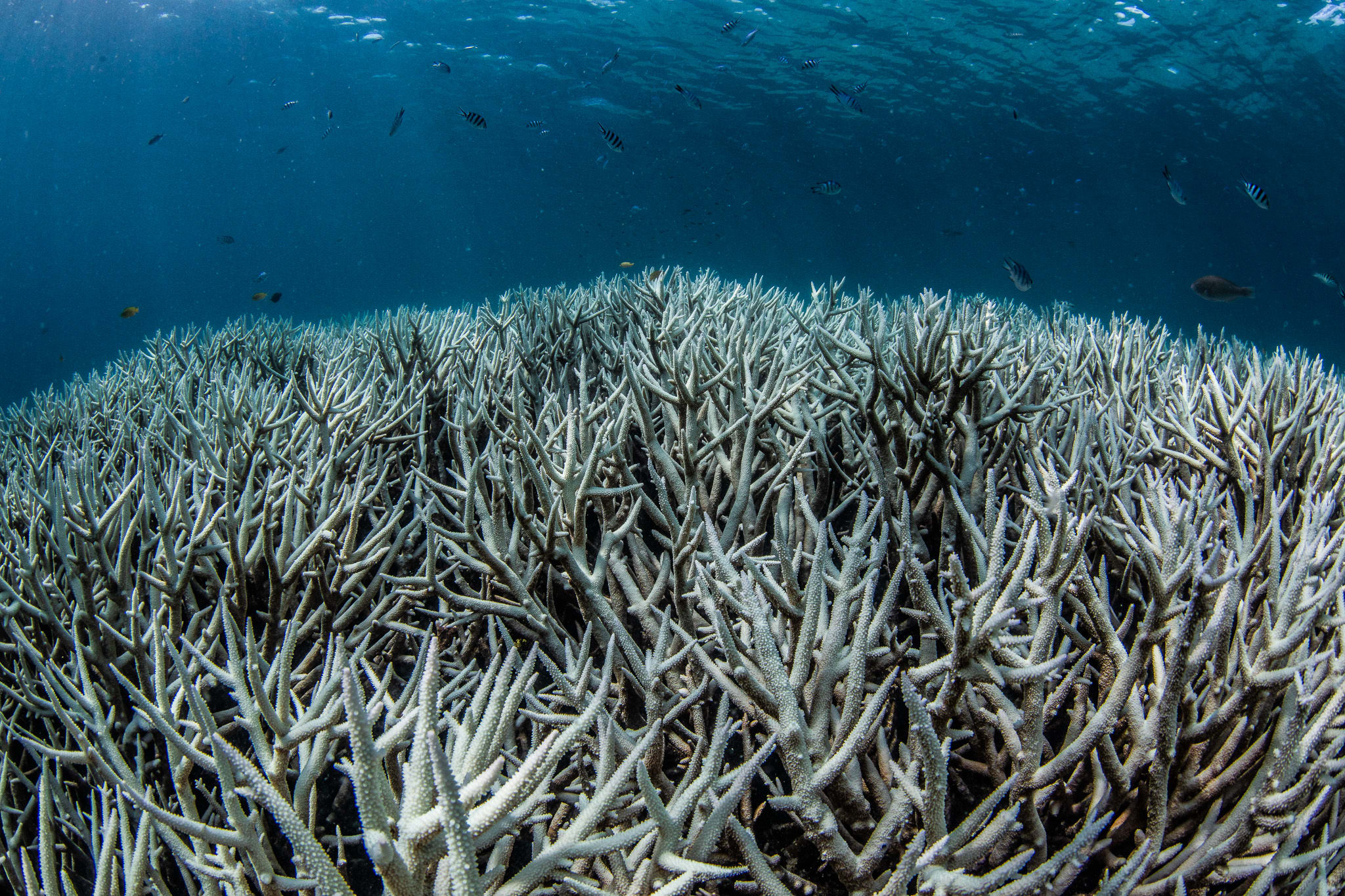
Climate change and the health of the Great Barrier Reef is front and centre ahead of the Federal Election with authorities stating the Reef has suffered widespread coral bleaching for the second year in a row with climate change “the greatest threat to the Reef”.
Back-to-back widespread bleaching has occurred only once before in the years 2016 and 2017.
The Reef Snapshot: Summer 2024–25, published today by the Great Barrier Reef Marine Park Authority, states:
Results of aerial surveys and in-water monitoring to date suggest the Reef has experienced widespread coral bleaching across the Far Northern and Northern regions of the Marine Park — mostly a result of prolonged exposure to higher-than-average water temperatures.
This event is the sixth since 2016 and, while less extensive than the coral bleaching event in 2023–24, it is the second time the Reef has experienced widespread bleaching events across consecutive summers.
Officially, Australia’s international treasure suffered mass coral bleaching in 1998, 2002, 2016, 2017, 2020, 2022 and 2024.
The Reef Snapshot says there have been widespread impacts in the shallows of reefs across the Far Northern and Northern regions:
Forty-one per cent of the 162 inshore and mid-shelf reefs surveyed recorded medium to high bleaching prevalence.
The majority (99 per cent) of the 96 offshore reefs surveyed recorded low to medium bleaching prevalence. The higher levels of coral bleaching were more frequently recorded on reefs surveyed from Cooktown to Cape York.
Only nine per cent of the 258 reefs surveyed in the Marine Park had very high prevalence of coral bleaching and no reefs surveyed had extremely high bleaching prevalence.
World Wide Fund for Nature-Australia Head of Oceans Richard Leck said it was distressing news.
“The Reef is crying out for climate action. Bleaching is becoming the new normal. It’s the sixth time the Reef has experienced widespread bleaching in less than a decade. Year after year the Reef is being cooked by underwater heatwaves.
“It’s our international treasure and it desperately needs serious action to drive down emissions.
“The next term of government could be the last opportunity to give our Reef a fighting chance,” Mr Leck said.
A WWF election survey released today shows the environment policies of the major parties fail to adequately address the climate and nature crises.
“WWF calls on the next Australian government to do everything it can to protect our most precious natural icon,” Mr Leck said.
Categories:
Weed warriors saving koalas and other threatened species
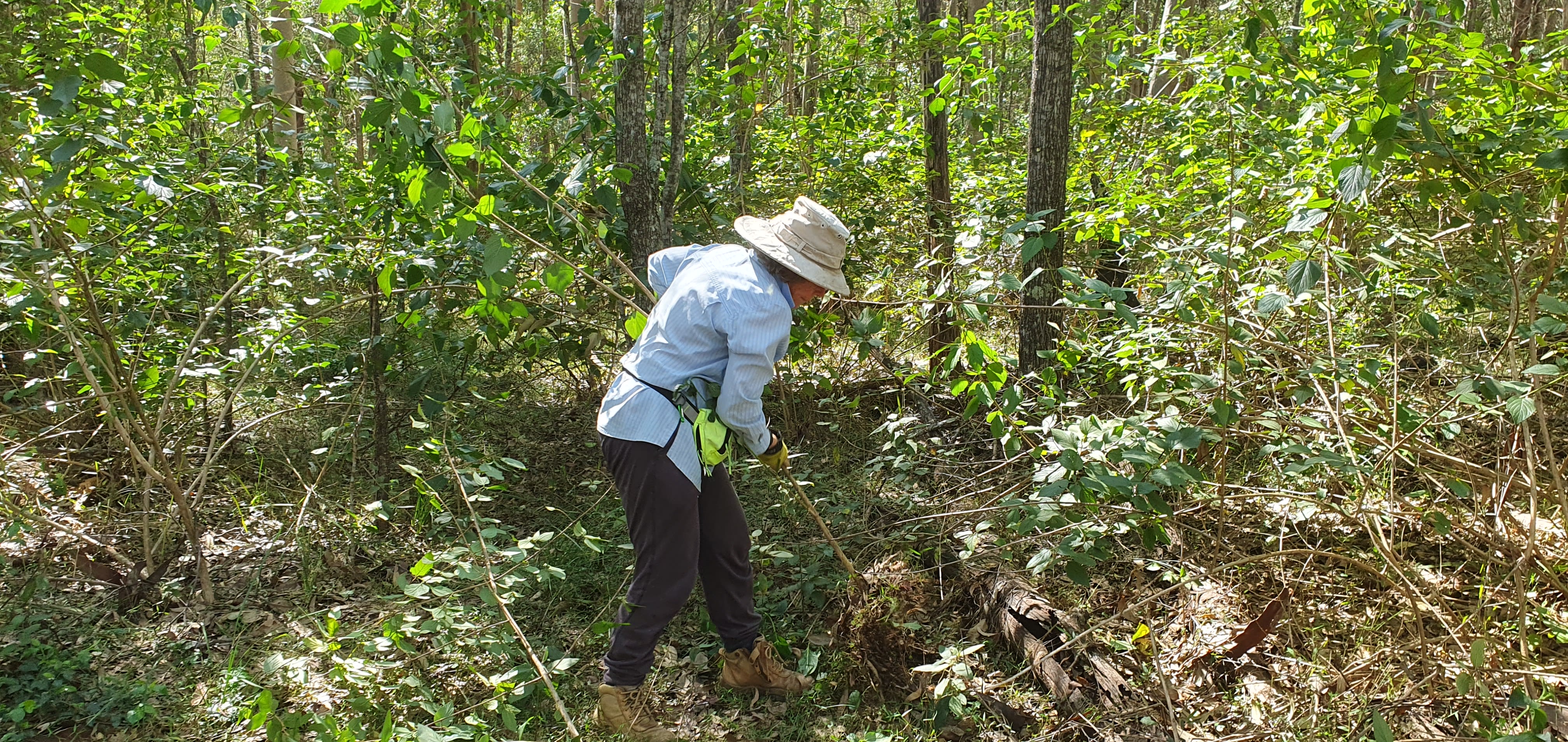
When Barbara Linley discovered there were koalas on her recently purchased Tullymorgan farm she was delighted. It was a big surprise.
But she was far from thrilled by a serious lantana infestation. It covered about 80% of her property in the NSW Northern Rivers Region.
Considered one of the world's top 10 invasive species, lantana prevents koalas from moving freely and accessing food trees. It also increases the severity of bushfires, and acts as a fuel ladder carrying flames into tree canopies.
“Finding out I had koalas was a real highlight but lantana was strangling the place. It was so thick I couldn’t even see the creek. I spent a considerable amount getting rid of some of it,” Barbara said.
Her concern for the future of her beloved old growth trees and the expense of removing the remaining lantana led to Barbara signing a private conservation agreement covering nearly 51 hectares of her farm.
In return she knows her trees are safe and Barbara can receive up to $45,000 to fund action – like clearing weeds – to improve the quality of the koala habitat.
The funding came through a project that encourages private conservation agreements in the Northern Rivers region to protect koala habitat.
It’s a collaboration between the World Wide Fund for Nature - Australia, the NSW Department of Climate Change, Energy, the Environment and Water, the NSW Biodiversity Conservation Trust and Envite Environment.
The project has smashed its target of protecting 500 hectares. Twenty conservation agreements have been signed, or are being finalised, that protect more than 900 hectares.
“Thanks to money from my conservation agreement we’re discovering what’s actually here because we’re getting though the lantana,” Barbara said.
“Recently, clearing away the noxious weed revealed a huge eucalypt tree I didn’t even know was there. Ecologists say it’s over 500 years old and has an 11-metre circumference,” she said.
Barbara removed the cattle being agisted on her farm and Envite Environment planted 1,000 koala trees to reconnect habitat. Traditional Owner visitors say it is very spiritual place.
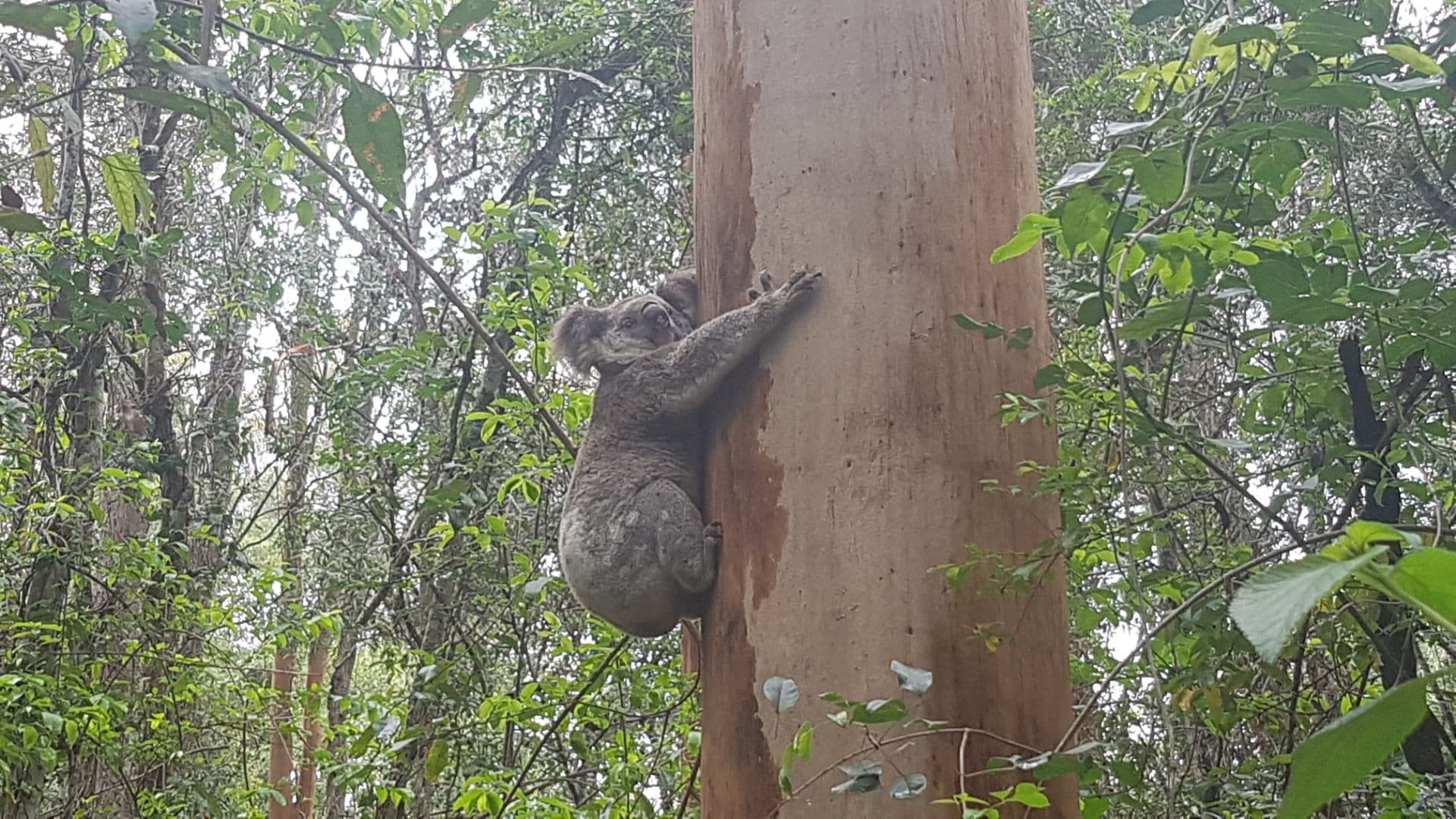
A koala on Barbara Linley’s Tullymorgan property
Credit: Grant Brown
A trail camera revealed some of the property’s rich biodiversity. There, just a metre apart, were a goanna and a land mullet, Australia’s largest skink species.
There is also at least one powerful owl, a pair of goshawks, glossy black cockatoos, yellow-tailed black cockatoos, little bent-wing bats, rare frogs and the Nature Conservation Council has put up 25 nest boxes for the squirrel gliders and feathertail gliders and are monitoring a resident pair of barking owls.
“I’m hoping to improve and increase the biodiversity, especially for endangered animals, and to prevent fires getting up into our magnificent mature trees and destroying them,” said Barbara.
Lola Topsom has a conservation business aimed at saving endangered animal and plants species and has been doing a lot of the lantana removal, assisted by Barbara – a very hands on property owner.
“I really love being out in nature, so working in conservation is the perfect job for me,” said Lola.
“When I see a serious lantana infestation my first thought is usually ‘wow, that's hectic’, followed by, ‘I can't wait to get stuck in’ and later I see that all my hard work has paid off.
“Discovering beautiful trees and freeing them of noxious weeds is so satisfying,” Lola said.
Barbara has also signed a permanent conservation agreement on a second property she owns further south in Taloumbi.
“I saw emus and thought that is a sign so I decided to buy it. I didn’t know they were rare emus,” Barbara said.
What Barbara saw was the endangered coastal emu, genetically different from all other emu populations. It’s estimated there are fewer than 50 left.
“Yaegl elder Aunty Elizabeth Smith said to me ‘the emus brought you here,’” said Barbara, who is now involved in their protection.
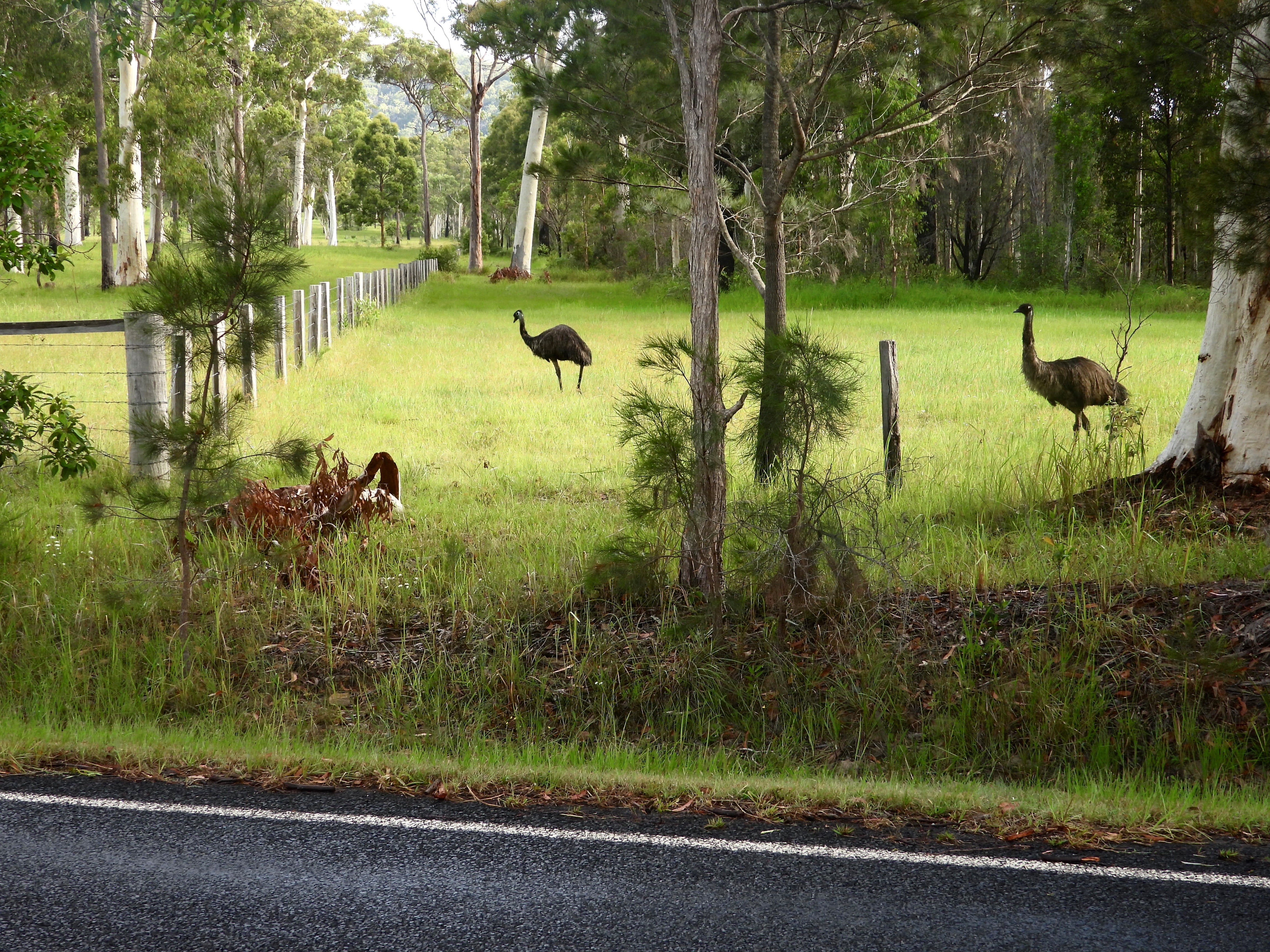
Rare coastal emus photographed on Barbara Linley’s Taloumbi property
Credit: Steve Otton
Using funding from her permanent conservation agreement, Barbara has employed Lola to work on Taloumbi.
The focus will be on lantana removal, keeping tracks free of vegetation, and clearing around old trees. These actions all boost fire prevention.
A number of old gums were still smouldering immediately after the 2019 fires and Barbara was able to rescue some of them.
“I walk past those trees now and say ‘I saved you,’” said Barbara.
Barbara works with First Nations experts who have used cool burning on both properties for five years to begin healing the land.
Tanya Pritchard, Senior Manager Koala Recovery for WWF-Australia, said private landholders are playing a crucial role to help the recovery of koalas.
“More than 50% of remaining habitat for koalas is on private land, so landholders such as Barbara are a critical for koalas long-term survival,” Tanya said.
“Supporting landholders to enter a private conservation agreement and assisting with restoration costs will ensure these areas are protected as high quality habitat for future generations of koalas and other wildlife species,” she said.
Categories:
WWF-Australia: keeping coal hurts Queensland’s future
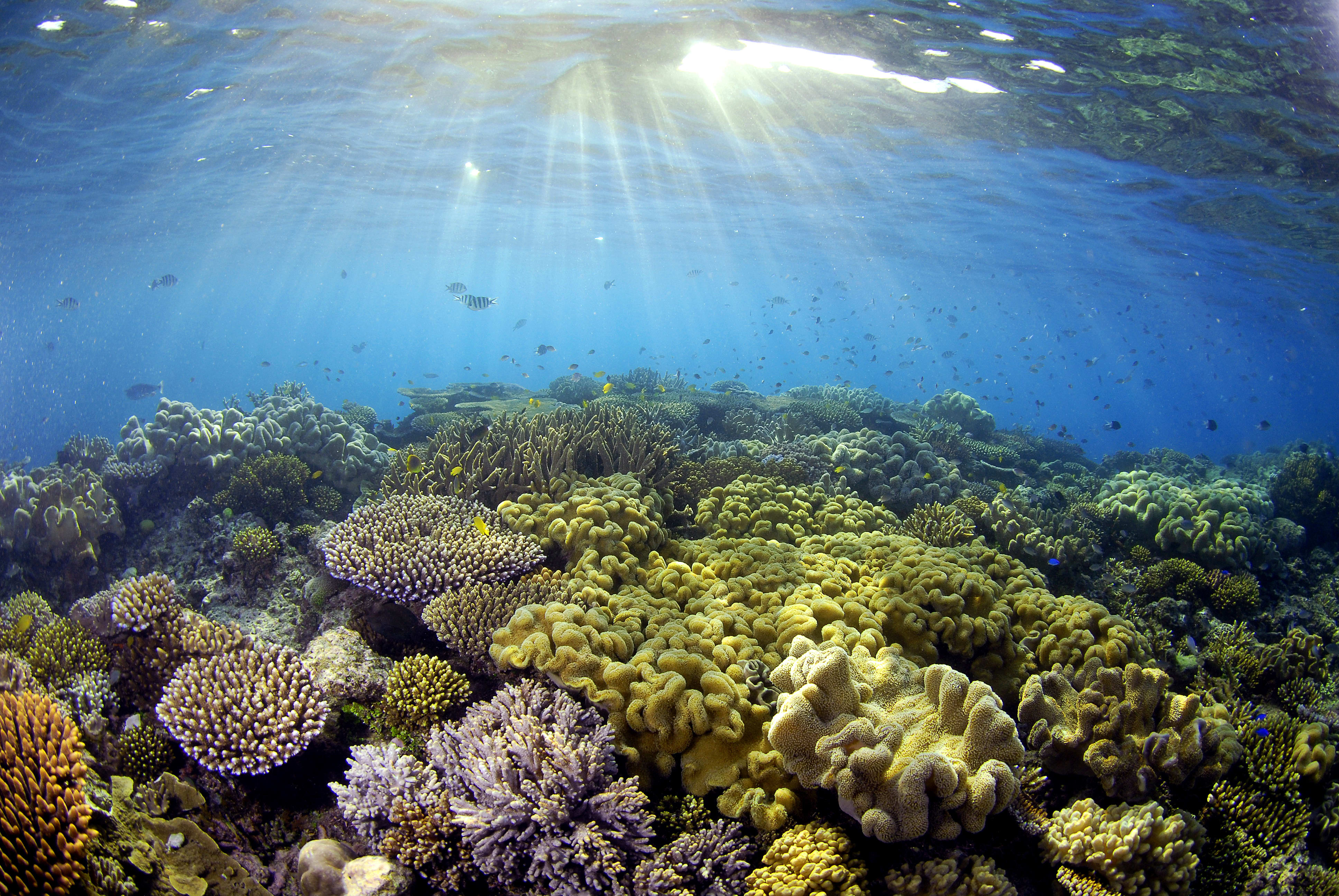
The World Wide Fund for Nature-Australia today expressed disappointment at the Queensland government’s decision to keep coal-fired power stations running longer than planned.
“This decision threatens our climate, our communities, and our iconic Great Barrier Reef,” said WWF-Australia CEO Dermot O’Gorman.
In 2024, LNP members showed bipartisan support to cut emissions by 75 per cent by 2035, voting to enshrine this target in legislation when they were in opposition.
“Prolonging coal-fired power makes this harder to achieve and raises serious questions about the Queensland government’s commitment to the 2035 target,” Mr O’Gorman said.
“The Great Barrier Reef is under threat due to rising temperatures and extreme weather. Keeping coal means more carbon emissions, worsening climate change.
“It means more climate-related disasters—floods, heatwaves, bushfires—will hit Queenslanders harder.
“Climate change raises the cost of living. Insurance premiums will go up, food production will suffer, and disaster recovery costs will soar. Keeping coal is bad economics.
“Queensland deserves better.
“The government must keep its promise and phase out fossil fuels as quickly as possible.
“Sticking to the emissions reduction plan will protect our environment, strengthen our economy, and create a cleaner future for all Queenslanders.
“WWF-Australia urges the Queensland government to act now - for our people, our nature, and our future,” he said.
Categories:
Nature and climate advocates unite behind plan for a renewable future
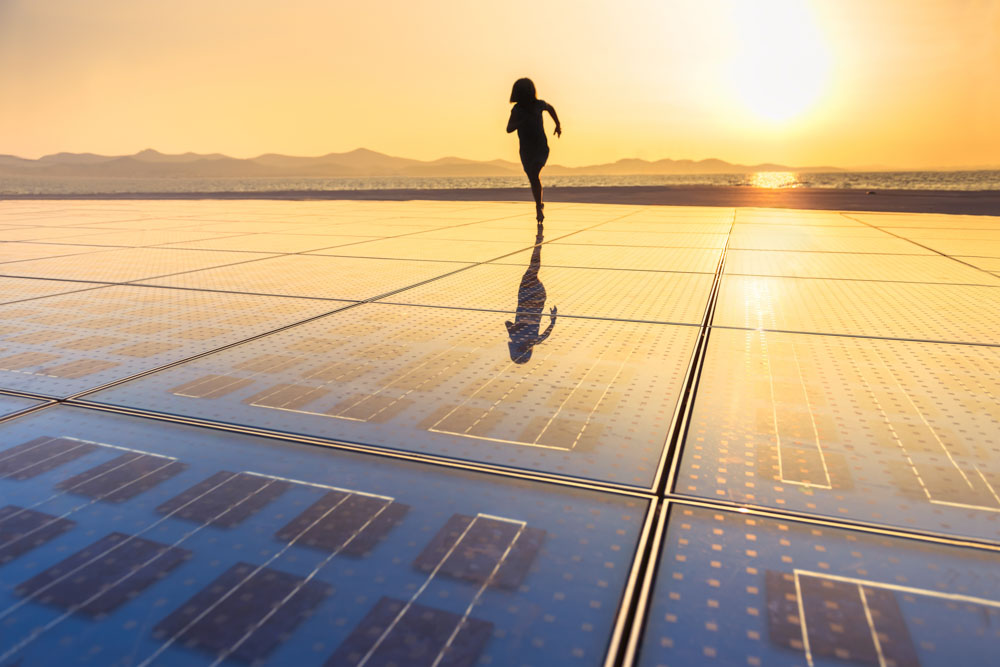
As the climate crisis escalates, conservationists, nature and climate advocates have united behind a plan for Australia to be 100% powered by renewables that are good for nature.
The joint report by the Australian Conservation Foundation and WWF-Australia charts a path for renewable energy and nature to work in harmony, and insists that renewable energy projects be built away from high conservation value areas.
The report, Our Renewable Future – a Plan for People and Nature, calls for all levels of government, industry and community to work together to support an energy transition that is good for nature and people.
Renewables account for almost half (40%) of Australia’s main power supply, but the two groups say aggressive disinformation campaigns risk the transition. The report calls for an end to the misinformation on energy, which is running rife, and blasts the nuclear debate for “wasting time we don’t have.”
“We’ve seen attempts to create confusion... these distractions are designed to delay action,” said Australian Conservation Foundation CEO Kelly O'Shanassy.
“The good news is we know how to get this right. This plan charts a way forward towards a future where the renewable energy transition works in harmony with nature,” she said.
“The next Australian Parliament must get cracking and agree on a credible energy plan. We have a once in a generation opportunity to get the policy settings right for a transition that tackles both Australia’s climate and nature challenges," she said.
The plan identifies key steps that government, industry and communities can take and shows how an energy transition can be done in a way that not only avoids and minimises nature impacts but improves nature overall.
The report concludes renewable projects must be built in the right places with buffer zones to protect nature and “no-go” zones to include national parks, world heritage areas and key biodiversity areas.
It finds degraded land should be prioritised for development, along with investment in local energy solutions, and embedding biodiversity gains into every project. “Climate action and nature protection are inseparable. Renewables – built in the right places – can not only co-exist safely with nature, but help nature and people thrive,” said Dermot O’Gorman, CEO of WWF-Australia.
“We must rapidly invest in and deploy renewables to meet the scale and intensity of the climate crisis,” he said.
The report calls for an urgent overhaul of national and state environmental laws to ensure every project creates net gains and positive outcomes for nature.
It also calls on governments to invest in Local Energy Hubs to support communities and counter disinformation.
ACF and WWF-Australia are calling on their combined 2.8 million supporters to get behind this vision and ensure the energy transition creates a bright future for all Australians.
Additional quotes:
“Local Energy Hubs are the most practical way the Federal Government can invest in the information, capacity and tools that communities badly need to ensure that projects contribute to thriving local economies and resilient ecosystems. This election we’ve seen regional communities ask for this support directly. The question is, will the government listen?” — Andrew Bray, National Director, RE-Alliance. “We need the right policies and laws to compel industry to build projects away from high conservation value lands and help restore biodiversity. This plan is an important step forward in showing how.” — Prof Brendan Wintle, from the University of Melbourne’s School of Agriculture, Food and Ecosystem Sciences “This plan will help guide the energy transition in a way that benefits nature and local communities. By working together, there are huge opportunities to build projects that will reduce emissions and contribute to the restoration of our natural landscapes.” — Heidi McElnea, Regional Partnerships Coordinator at the Community Power Agency
Categories:
Battery program will unlock affordable, clean energy for more Australians
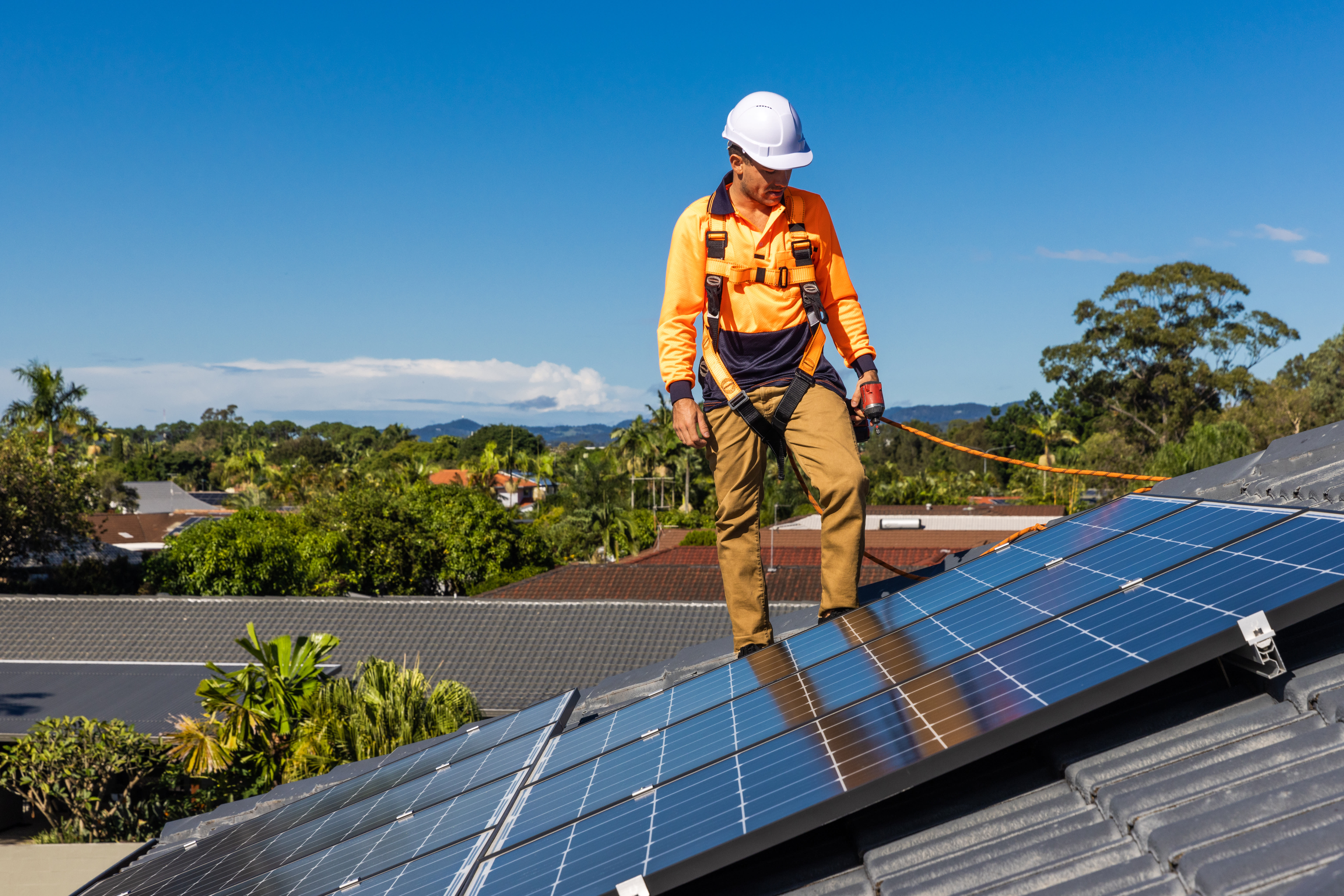
WWF-Australia has welcomed Labor’s election commitment of a new home battery program as an important step to unlock the benefits of affordable and clean renewable energy for more Australians.
The program announced this weekend will provide a 30% discount on the up-front cost of batteries for households and small businesses in a bid to cut power bills and greenhouse gas emissions.
“This $2.3 billion investment in lowering power bills will deliver cost savings and flow-on benefits to millions of Australians,” said Rob Law, WWF-Australia’s Senior Manager, Energy Transitions.
“Supporting households with batteries will not only bring down power bills now, but provide a more reliable energy supply and make the most out of the electricity generated by Australia’s four million solar rooftops.”
WWF-Australia is part of Renew Australia For All, an alliance of more than 60 faith, social services, union, community, climate and environment groups, working to ensure all Australian households benefit from the shift to renewable energy.
The alliance has been calling on the federal government to invest $50 billion over 10 years to repower Australian homes and communities with rooftop solar, batteries, electric appliances and thermal improvements to cut energy bills and reduce climate pollution for everyone.
Mr Law said today’s announcement is significant and more needs to be done to improve the equity of the energy transition and support broader household energy upgrades.
“We cannot allow the energy transition to expand inequality in Australia,” he said.
“All Australians should benefit from the cost savings that come through renewable upgrades to homes—no matter if they rent, live in an apartment or social housing or cannot afford the upfront costs.
“We want to see greater support for solar and energy efficiency upgrades so everyone has the chance to bring down their energy bills for good and live in healthy homes that are affordable to heat and cool.”
Categories:
Next Government must place nature front and centre this election
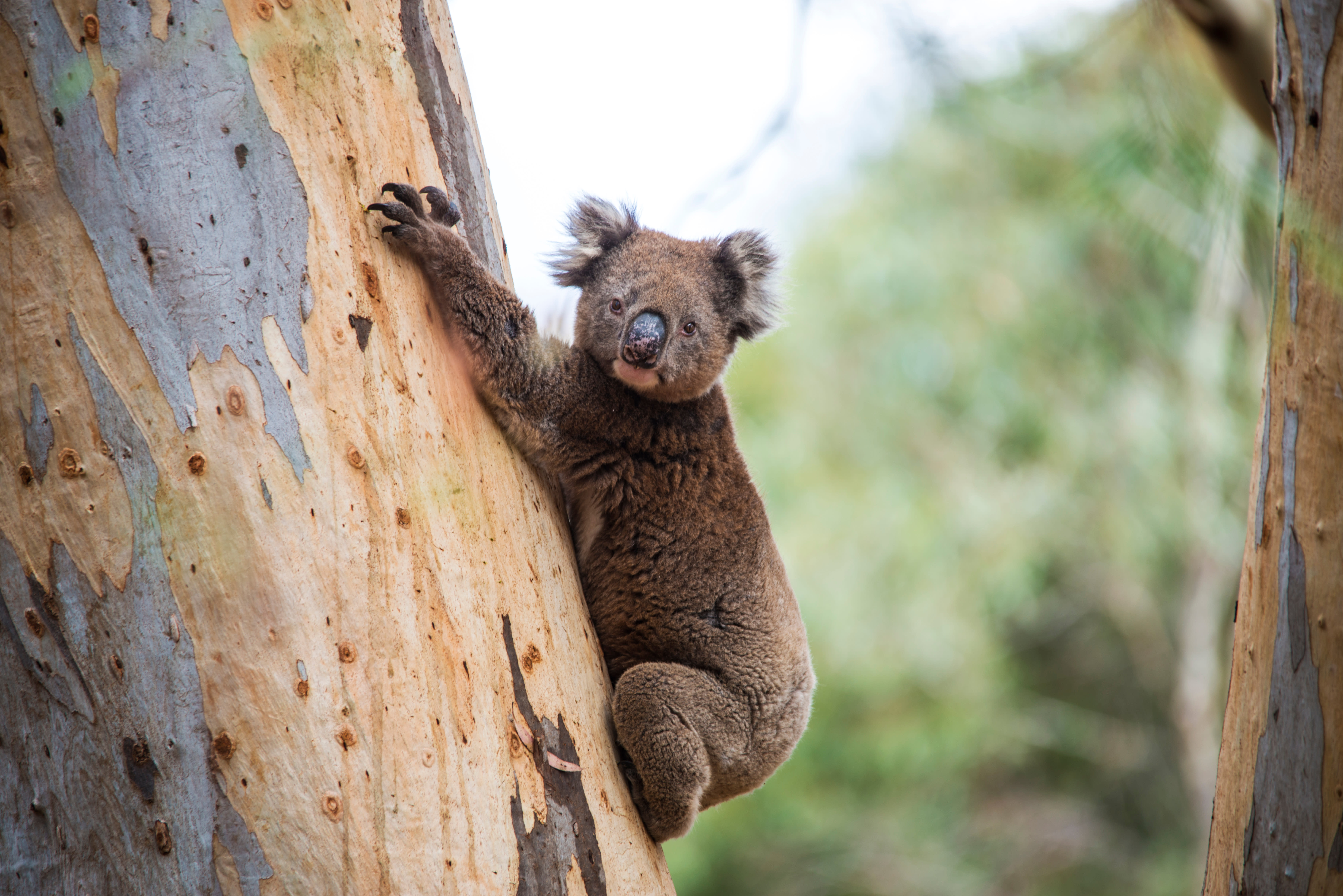
The World Wide Fund for Nature-Australia is calling on all political parties and independents to make nature a priority in this federal election.
“Nature is the foundation of our lives. Our wellbeing, our jobs and our economy, depend on a healthy environment,” said Nicole Forrester, WWF-Australia’s Chief Regenerative Officer.
“We cannot continue to take nature for granted.
“This election is an opportunity to turn things around. To start building a nature positive Australia and stop providing loopholes for damaging industries.”
In the lead up to the election, WWF-Australia has launched a campaign calling on political parties and candidates to Choose Nature and build a safer, nature positive future.
It outlines five commitments for nature that are most critical for the next Australian Government:
“Taking these steps will not only drive economic growth and job creation, but also safeguard Australian communities and our wildlife,” said Ms Forrester.
“A significant increase in funding is needed to protect our iconic reefs, forests and wildlife, including investment for First Nations communities to care for Country.”
“To focus on nature, we need the next term of government to deliver the full package of environmental reforms within the first 12 months.
Ms Forrester said the next parliament also has a narrow window to act on climate to help stabilise global heating to 1.5°C.
“One of the greatest threats to nature is climate change. It is also already hurting our economy and our families. It is fuelling more extreme heatwaves, bushfires, floods and storms, and driving up insurance costs. Our iconic reefs are facing devastating coral bleaching,” she said.
“The only pathway for a safer climate and a prosperous future is for Australia to end the extraction of fossil fuels for energy and exports and replace it with renewable energy and clean industries.
“Australia must realise the potential of becoming a renewable energy superpower. This will require the next government to take leadership and urgent action to capture the opportunity of the energy transition that benefits both nature and communities,” she said
“Australians go to the ballot box on 3 May. Our political leaders must place nature front and centre of their commitments to protect our climate, communities and wildlife.”
People can send a message to their political leaders and ask them to prioritise nature here.
Categories:
Dramatic new video shows Great Koala National Park destruction
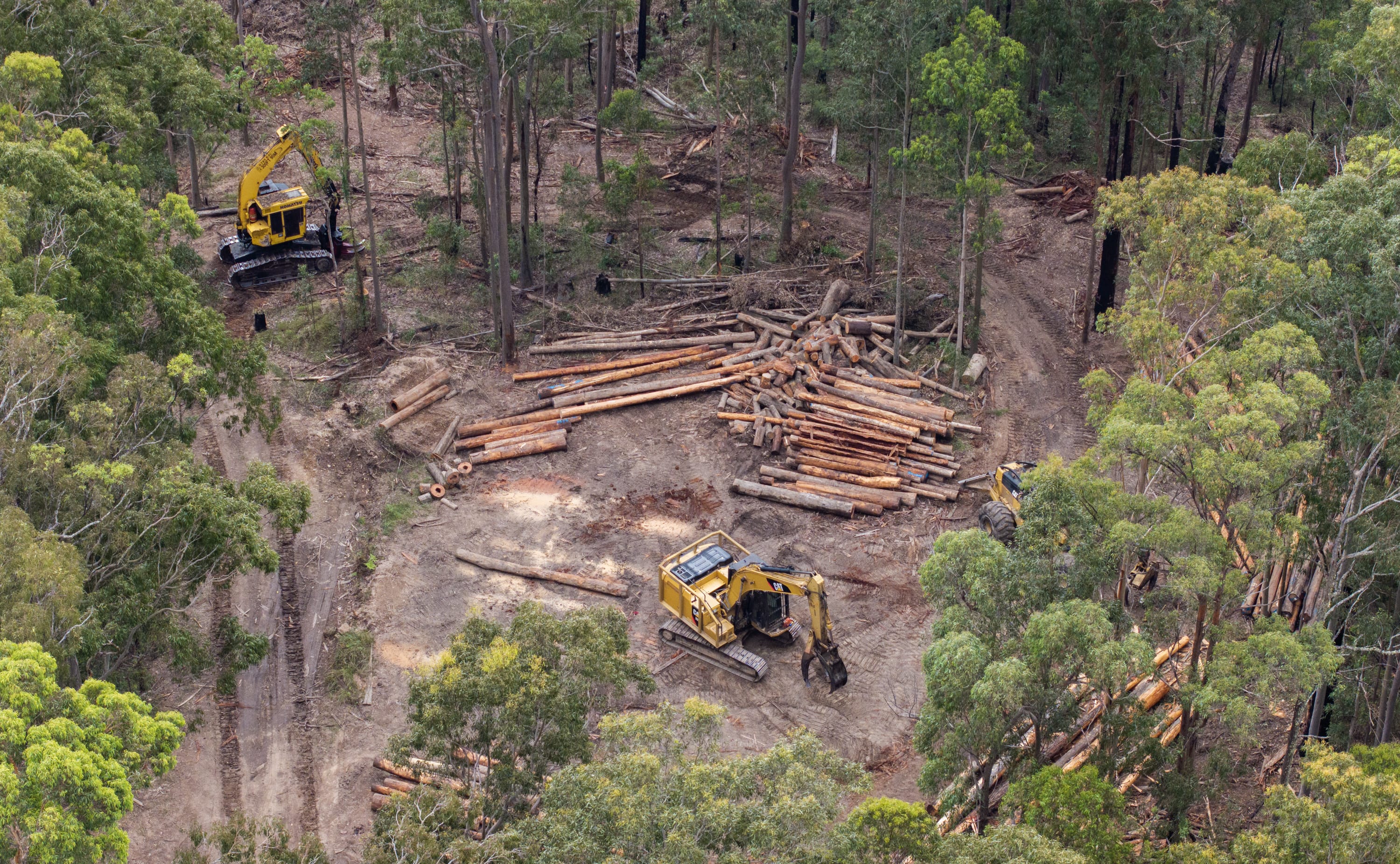
Further delays to declaring the park threaten thousands of hectares
Dramatic new video captures the sights and sounds of the destruction of forest earmarked for the Great Koala National Park. It comes as an Indigenous Elder made an impassioned plea for the devastation to stop.
A drone filmed the brutality of logging heavy machinery just last week in Sheas Nob State Forest, inland from Coffs Harbour.
A harvester, weighing about 30 tonnes, grasped towering eucalypts with its hydraulic grabber as its chainsaw attachment sliced through trunks in seconds.
Next came the sound of the trunk cracking, followed by the crashing noise as trees many decades old hit the ground.
A skidder then dragged logs to a collection point, destroying forest floor vegetation and compacting the soil.
Conservation groups are sharing the vision so the public understands the damage happening right now to crucial koala habitat earmarked for inclusion in the Great Koala National Park.
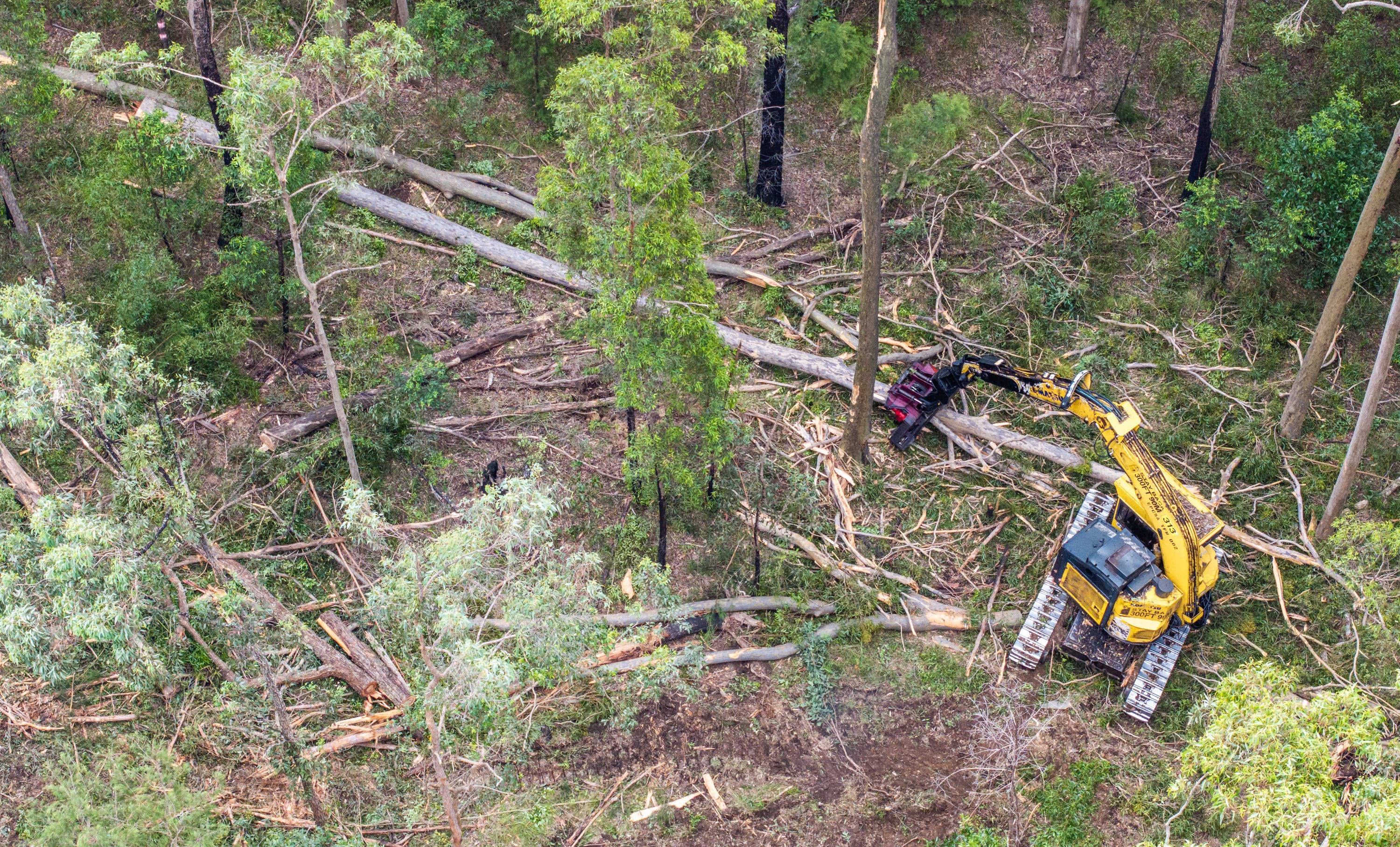
Heavy machinery logging forests earmarked for the Great Koala National Park on 20 March 2025
Credit: © Paul Hilton/Earth Tree Images
A previous analysis by the North East Forest Alliance uncovered that logging has already occurred across 7,185 hectares within the Great Koala National Park assessment area since the Minns Government was elected.
A new report by Wilderness Australia and the National Parks Association of NSW reveals that Forestry Corp’s publicly available harvest plans show logging is currently underway across a further 1,924 hectares within the assessment area.
Logging is scheduled to start in another 3,469 hectares within the next 6 months. If a decision is delayed for another 6 months, and if scheduled logging is completed, that adds up to just under 5,400 hectares of additional logging.
A delay of 6 months could take the total logged area to 12,578 hectares. That equals over 6,700 Sydney Cricket Grounds.
Indigenous Elder Uncle Micklo Jarrett, a Gumbaynggirr man of the Baga Baga clan, is distraught at logging in Ingalba State Forest which includes sacred Country. Uncle Micklo Jarrett said:
One of my main totems is the Dunggirr, the Koala. My identity and my being is sustained, nourished, upheld and defined by the Dunggirr.
For years now my totem the Dunggirr has been killed by the Forestry Corporation of NSW including in many, many sites sacred to me and my people such as Little Newry (the eastern edge of our sacred mountain Nunguu Mirrarl). In the southern parts of our Country there are the most important Dunggirr sacred sites and landscapes with dreaming stories and songlines for the Dunggirr extending back for many thousands of years.
The main songline is from Yarriabini on the coast to the west through Ingalba. In the last week the Forestry Corporation of NSW has destroyed the best Dunggirr habitats on this songline in forests that the NSW Government promised to protect.
For too long now our forests and our totems have been destroyed by the Forestry Corporation despite me and my people asking for it to stop.
For the benefit and well-being of all in the Gumbaynggirr Nation we MUST stop logging our forests and the entire 176,000 hectare Great Koala National Park must be declared immediately because that is what our Government promised us.
It’s like you are erasing my history, my culture, you have to stop now, you promised us a Great Koala National Park and you have to stop the destruction of my Country.
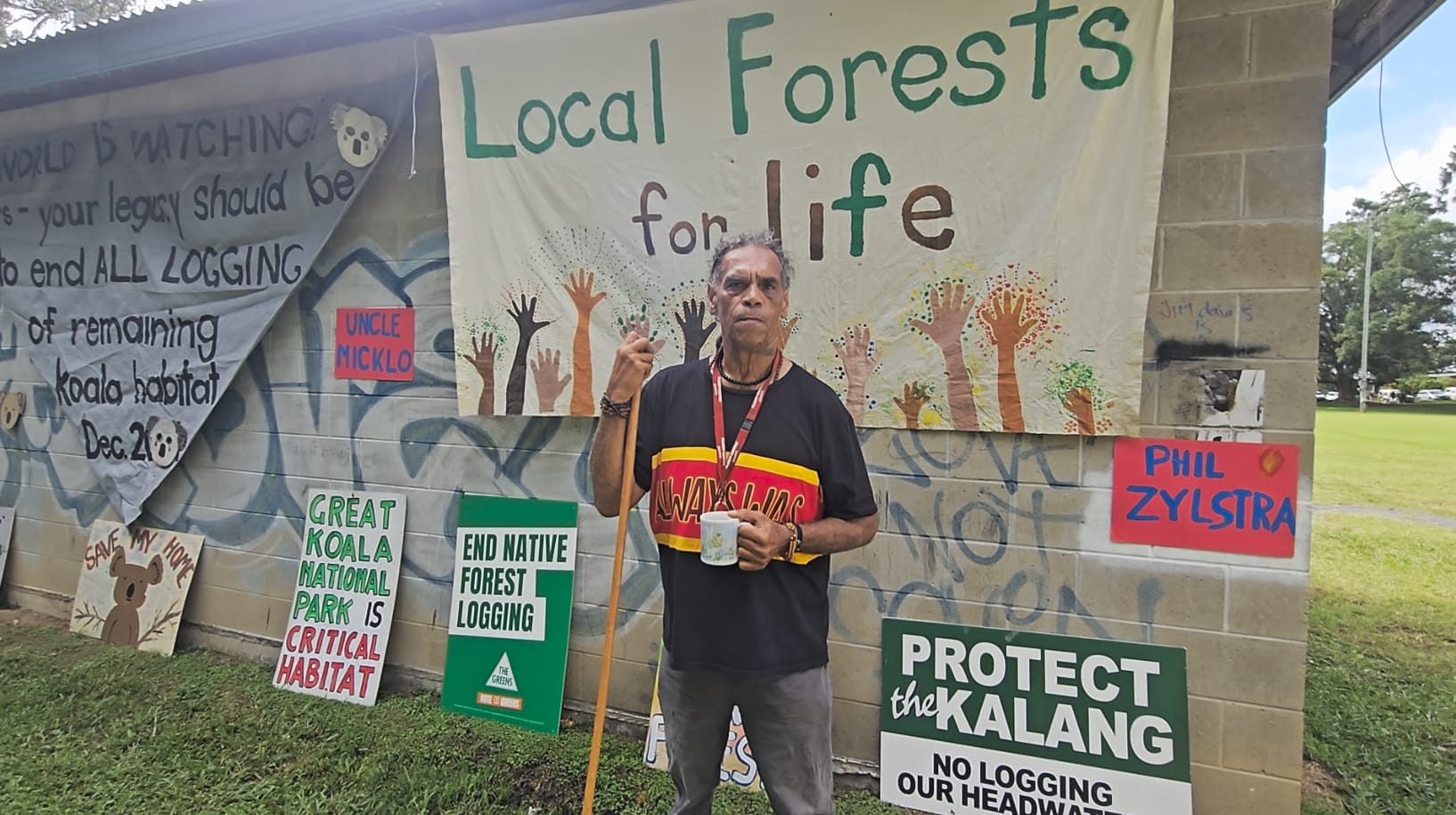
Indigenous Elder Uncle Micklo Jarrett
Credit: Mark Graham
Satellite images make a mockery of claims that selective logging is occurring with conservationists saying that logging will result in a “Swiss cheese” Great Koala National Park because of all the holes left in forest cover.
A new poll reveals a large majority of voters support the creation of the Great Koala National Park across the NSW mid-north coast in the state seats of Port Macquarie, Coffs Harbour, and Oxley.
Bob Debus, Chair of Wilderness Australia said:
If the government wants to create a big national park, with real conservation integrity, that preserves the best remaining habitat for koalas, then they have to stop logging it.
To authorise thousands of hectares more logging and then declare them as conservation reserve defies common sense.
It has reached the point where I feel the government would be wise to act to put a stop to the ongoing destruction of its promised park.
Darren Grover, Head of Regenerative Country, WWF-Australia said:
The video will be shocking to many people. It shows the brutal efficiency of heavy logging machinery destroying trees which will take many decades to replace, if at all.
But Forestry Corp’s hardwood division, the part responsible for native forest logging, is the opposite of efficient. It has run up losses of more than $70 million in the last four years.
I’m sure taxpayers are not happy that a state government business has run up losses like this in the process of degrading forests and endangering wildlife.
People want this Park. They want to save koalas. Time to make it happen
Gary Dunnett, Chief Executive Officer, National Parks Association of NSW said:
The Great Koala National Park proposal was designed around two basic principles: to protect as much as possible of the core Koala habitats and populations of the region; and to focus exclusively on existing National Parks and State Forests.
The reason for concentrating on public lands is that determining their future is the responsibility of the Premier of the day.
This report paints a stark picture of what this means for Premier Minns’ reputation- the longer he delays declaring the new park, the more koalas will be needlessly lost.
Jenny Weber, Campaigns Manager, Bob Brown Foundation said:
Every day the shocking destruction continues in Koala habitat in the forests that were promised protection years ago.
Premier Minns must stop the bulldozers now. It can and must happen, for koala and greater glider survival, for climate benefits and for the majority of Australians who want native forest logging to end.
Categories:
Nature-wrecking bill undermines budget commitments

The Albanese Government has undermined modest commitments to nature in tonight’s budget by rushing through destructive changes to Australia’s environment laws, said WWF-Australia.
The government chose the cover of budget day to introduce amendments to the national nature law that will exempt the Tasmanian salmon industry from proper environmental regulation in Macquarie Harbour despite the damage being experienced by the endangered Maugean skate and adjacent World Heritage Area.
“This could sound the death knell for a species that has been around since the time of the dinosaurs and is found nowhere else on Earth,” said WWF-Australia’s CEO, Dermot O’Gorman.
“But this legislation goes beyond one industry and the fate of one species.
“It sets a dangerous precedent that will encourage fossil fuel companies and other harmful industries to push for polluting carve outs.
“This is why we need an overhaul of Australia’s nature laws. We need laws that protect our unique wildlife and wild places, which Labor promised to deliver in its nature positive package. Instead we have seen polluting industries put before nature.
“WWF is pleased to see Labor recommitting to establishing a national environment protection agency if it wins a second term. This needs to be delivered in the first 12 months of the next Parliament.”
Budget leaves nature shortchanged
Tonight’s budget provided modest funds for nature, including $200 million to boost Australia’s network of protected areas and $12 million to deliver increased ocean protection.
The investment aims to protect another 30 million hectares of land as part of Australia’s commitment to protecting at least 30% of land and sea areas by 2030.
“This is a welcome contribution to preserving Australia’s wild places, but it will take a lot more than $200 million to protect and manage the diversity of areas important for biodiversity,” said Mr O’Gorman.
The budget also failed to provide any significant funding for threatened species recovery.
“This government promised to prevent new extinctions, but has again failed to deliver the funding needed to meet this commitment,” said Mr O’Gorman.
“Nature is on life support and the government is delaying treatment.”
The budget included $1.8 billion in energy bill relief payments, but no additional funding to subsidise the cost of household solar, batteries and electric appliances.
“It’s good to see energy bill relief for those doing it tough, but a more effective way to permanently cut power bills would be targeted measures to electrify and upgrade homes,” said Mr O’Gorman.
“All Australians should benefit from the cost savings that come from renewable energy - including people who rent, live in an apartment or cannot afford the upfront costs.
“Basic energy efficiency upgrades combined with solar and battery storage could save an average household $3,039 per year.”
Nature needs 1% of the national budget
With an election looming, WWF-Australia is calling on the next Australian Government to invest 1% of the budget into nature.
“Australia’s biodiversity crisis is a direct result of decades of inadequate funding,” said Mr O’Gorman.
“A mere $317 million is forecast to be spent on biodiversity over the next financial year. This is less than half a percent of Australia’s budget and a paltry sum for something that is essential to our economy and wellbeing.
“Investing in nature will not only drive economic growth and job creation, but also safeguard Australian communities and wildlife.”
People can send a message to their political leaders and ask them to prioritise nature here.
Categories: